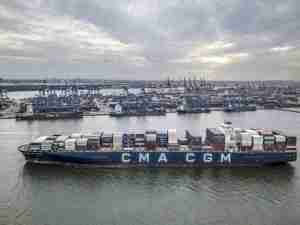The SFI is an initiative put forward by the US government to safeguard global maritime cargo through cooperation with the maritime industry and governments of trading partners. Radiation detection, imaging and related equipment is utilized to scan maritime cargo containers to help detect and interdict illicit trafficking of special nuclear material and other radioactive material destined for the US Last July, Hong Kong and the US exchanged letters of understanding on co-operation to conduct in Hong Kong an SFI pilot project in a limited capacity until the end of April 2008. The Hong Kong pilot began in November 2007.
As a major business hub and one of the busiest container ports in the world, Hong Kong fully recognizes the importance of enhancing the security of the global maritime trading system through international co-operation.
Hong Kong's port already contributes positively towards a safe international maritime trade environment. Our continued participation in SFI will provide added assurances, thereby further enhancing the competitiveness of the port of Hong Kong.
A Government spokesman explained that, 'the present pilot has not affected port efficiency so far. A one-year extension will allow a fuller testing of the project, which has been running for only a short while, such that its effectiveness and impact on the efficient running of the port may be ascertained.
'The arrangements will remain the same during the extension. Containers leaving Hong Kong for the US delivered through the in-gate of a designated terminal in Kwai Chung will be scanned on a voluntary basis. US-bound containers which have undergone the scanning process are expected to be less likely to be subject to security inspection on their arrival at US ports,' the spokesman continued.
The SFI is being or will be implemented in six other ports in Pakistan, Honduras, the United Kingdom, Oman, Singapore, and Korea.








